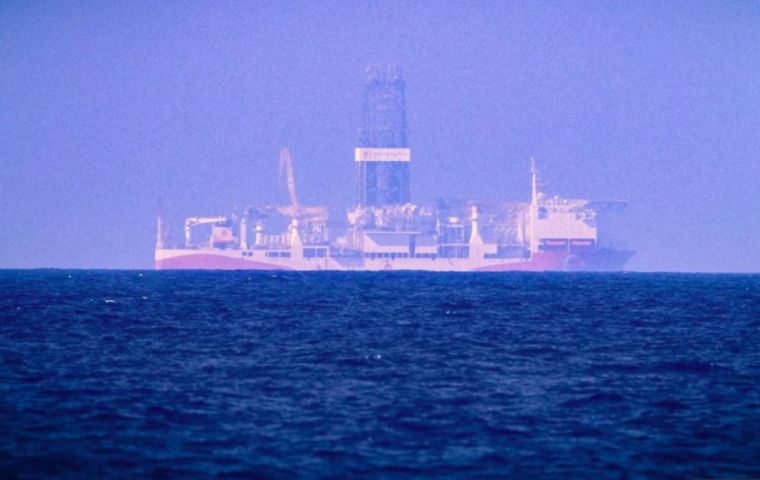MercoPress. South Atlantic News Agency
Greenpeace on campaign against deep sea mining, at least until more information on the ecosystem is available
 Throughout July, work is under way at the UN's International Seabed Authority (ISA) in Kingston to establish regulation on mining the oceans
Throughout July, work is under way at the UN's International Seabed Authority (ISA) in Kingston to establish regulation on mining the oceans Greenpeace ship sets sail on Thursday to study an ecosystem beneath the Atlantic Ocean thought to hold clues to the origins of life to press its case for a ban on deep-sea mining, as talks in Jamaica seek to agree on rules of deep-sea mineral exploitation.
Throughout July, work is under way at the UN's International Seabed Authority (ISA) in Kingston to establish regulation on mining the oceans. So far, regulations have only allowed exploration.
Greenpeace is among the campaigners urging a moratorium at least until the ocean depths are understood.
The group also says the ISA is not the right authority to make the decision. It wants what it calls a global ocean treaty with a holistic view of all the challenges, including fishing and oil drilling, as well as seabed mining.
Gretchen Frueh-Green, a professor at ETH university in Zurich, is on board the Esperanza, which will collect samples from the ecosystem known as the “Lost City”, which she discovered.
A series of ghostly hydrothermal vents thought to harbor clues to the origin of life, it lies in international waters that the ISA governs.
The point, Frueh-Green says, is that science should be allowed to explore first. Exploitation can wait.
“It's our history, it's the Earth's history, and if we perturb it we don't know how fast it will recover, or what influence the perturbation would have on ocean chemistry,” she said.
The Esperanza, which will take around five days to reach the Lost City once it leaves the Azores on Thursday, is sailing there as part of Greenpeace's 2019-20 Protect the Oceans campaign.
The group on Wednesday publishes a report in which it says the ISA “exemplifies the disjointed, pro-exploitation governance status quo that is failing to provide adequate ocean protection”.
It says deep sea mining could cause irreparable damage, including releasing carbon stored in deep sediments that would aggravate global warming.
The ISA had no immediate comment, but has previously said a deep sea mining code could be adopted by July 2020.
Discussions on royalty distribution are likely to complicate this month's talks.




Top Comments
Disclaimer & comment rulesCommenting for this story is now closed.
If you have a Facebook account, become a fan and comment on our Facebook Page!